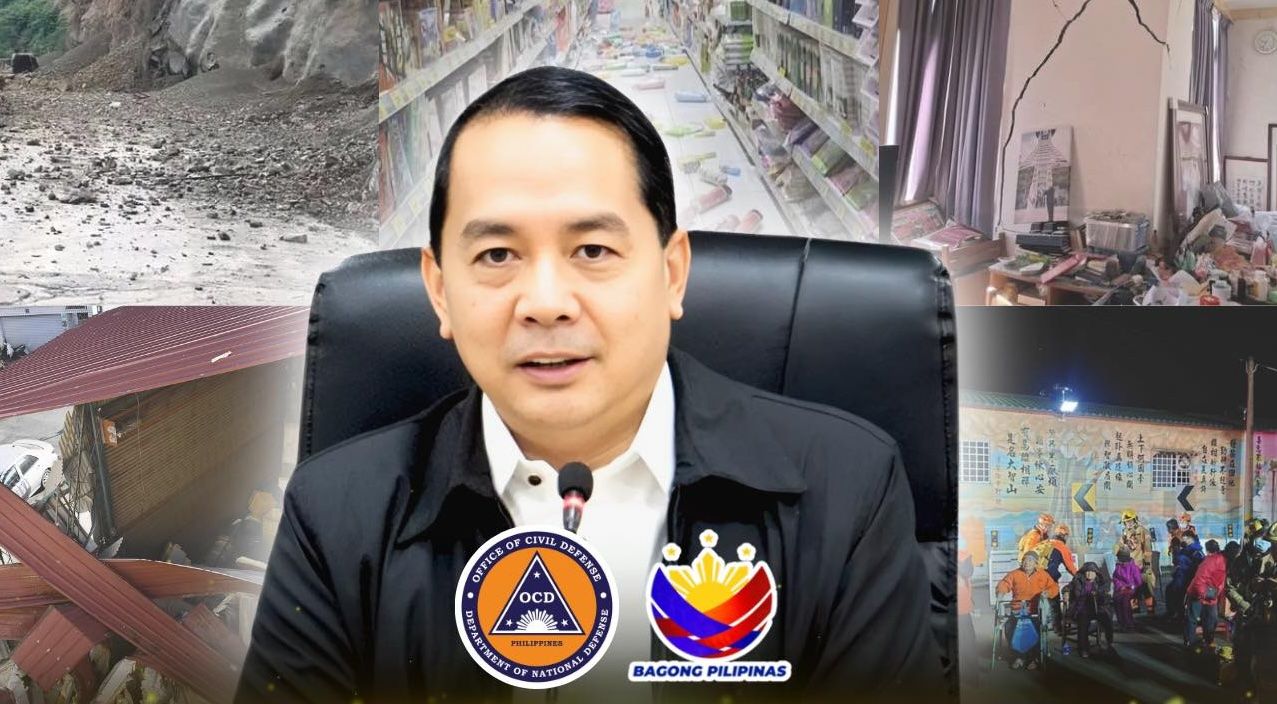OCD extends sympathies to quake-hit Taiwan; urges PH to continue preparing for 'Big One'

The Office of Civil Defense (OCD) stood in solidarity with Taiwan on Wednesday, Jan. 22, after it was struck by a destructive 6.4-magnitude earthquake.
“Our sincerest sympathies are with the earthquake victims in Taiwan. We offer our prayers as they recover from the damage and distress caused by this disaster,” said OCD Administrator, Undersecretary Ariel Nepomuceno.
Initially reported with a magnitude of 6.0 by the United States Geological Survey (USGS), the quake occurred at 12:17 a.m. on Jan. 21. At least 27 people were injured while the impact triggered landslides and caused significant destruction to homes.
According to the USGS, the epicenter was located 12 kilometers north of Yujing district in southern Taiwan. Taiwan’s Central Weather Administration has reported over 50 aftershocks since the initial quake.
“We wish you better days ahead and hope that you will be able to rebuild your lives soon,” Nepomuceno said.
He said that like the Philippines, Taiwan is prone to earthquakes due to its location along the edges of two tectonic plates near the Pacific Ring of Fire.
The OCD said that Taiwan recently experienced a major earthquake in April 2024 — a 7.4-magnitude tremor that claimed 17 lives and severely damaged buildings in eastern Hualien County. Before that, a devastating 7.6-magnitude quake in 1999 also destroyed thousands of structures and resulted in 2,400 fatalities, marking one of the worst disasters in the region's history.
“As a nation also vulnerable to volcanic eruptions and earthquakes, we stand in solidarity with Taiwan in promoting disaster resilience. We commend their significant progress in coping with earthquakes since the tragic 1999 tremor,” the OCD chief remarked.
Nonetheless, Nepomuceno praised Taiwan's implementation of advanced measures, including enhancing building codes for quake-resistant construction and establishing an early warning system to alert the public of severe ground shaking.
“We may still have a long way to go, but we will get there through united efforts to build a disaster-resilient Philippines. A top UN [United Nations] disaster risk official has even acknowledged our strides, indicating we are on the right track,” Nepomuceno emphasized.
He urged fellow Filipinos to come together and prioritize readiness for the “Big One,” a major earthquake that could potentially strike the Philippines with devastating consequences.
“Disasters can strike at any moment. It is crucial that we level up our preparedness. Remember, your safety does not solely depend on rescuers or government agencies—it is your responsibility. Take action now, because every ounce of preparation counts,” Nepomuceno said.